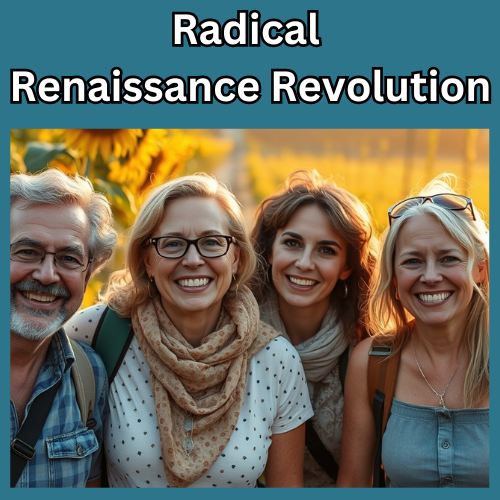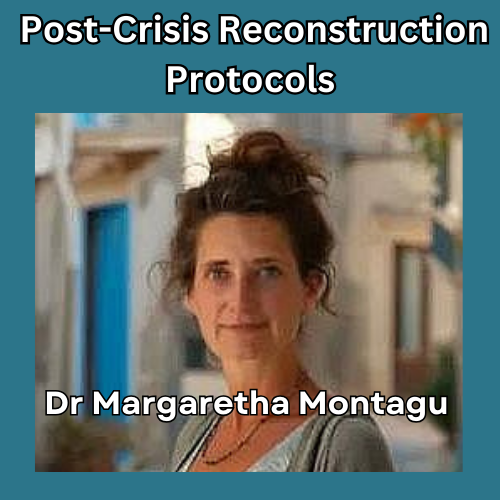Module 1: The Observant Heart – Noticing What’s Already There
Welcome to Day One!
Good morning. (Or afternoon, or evening—whenever you’ve carved out these precious 10 minutes for yourself.) I’m delighted you’re here. Imagine we’re sitting across from each other at a cosy café, steam rising from our mugs, perhaps some gentle music in the background. This is a space for authenticity—no need for perfection.
Below a list of all the modules, for you to work through in your own time and at your own pace!
Today, we begin with the foundation of all meaningful change: simply noticing what’s already present in your life. Let me share Sarah’s story with you.
Sarah’s Story: Finding Light in Unexpected Places
The cardboard box made a hollow thud as Sarah placed it on her desk. After five years at Meridian Publishing, her personal belongings fit into one container—a potted succulent, family photos, her ergonomic mouse, and a coffee mug her daughter had painted. The mug read “World’s Best Mom” in wobbly purple letters.
“Security will escort you out,” her now-former manager said, avoiding eye contact. “Budget cuts. Nothing personal.”
Nothing personal. The phrase echoed in Sarah’s mind as she drove home, the box sliding slightly on the passenger seat with each turn. The spring air that drifted through her cracked window smelled like cherry blossoms, but Sarah couldn’t appreciate it. Her thoughts were a carousel of worry: mortgage payments, her daughter’s upcoming school expenses, the dwindling savings account.
That evening, after serving her daughter Emma’s favourite mac and cheese (which Sarah herself couldn’t stomach), she collapsed onto her porch swing. The wooden slats creaked rhythmically beneath her. From next door came the sound of her neighbour Carol’s wind chimes—delicate, crystalline notes that had once irritated her but now provided an oddly comforting soundtrack.
The knock on her door came as the sunset painted the sky in watercolour oranges and pinks.
“I made too much,” said Carol, extending a plate of still-warm chocolate chip cookies, the scent of vanilla and melted chocolate wafting between them. “Thought you might want some.”
Sarah hesitated, then admitted, “I lost my job today.”
Carol didn’t offer platitudes. She simply nodded and said, “The cookies come with wine, then,” and disappeared briefly before returning with a bottle and two glasses.
They sat on the porch swing, the wood warm against their legs, sharing wine that tasted of blackberries and something spicy Sarah couldn’t name. Carol mostly listened, occasionally refilling glasses, while crickets began their evening chorus in the yard.
“You know,” Carol said finally, “my brother works at Phoenix Media. They’re expanding their editorial department. I could put in a word.”
That night, after Emma was asleep, Sarah found an old journal and, without quite knowing why, wrote three things:
Carol’s cookies. The smell reminded me of weekends at my grandmother’s. Emma hugged me extra tight tonight. Her hair smelled like strawberry shampoo. Possible job lead at Phoenix Media.
It wasn’t much. But as her pen moved across the paper, something loosened in her chest. She slept better than she had expected to.
The next evening, she wrote three more things:
The barista at the coffee shop remembered my order and said, “Hang in there.” That recruiter from last year’s conference called back about a freelance project. Emma helped make dinner without being asked.
The daily ritual took less than five minutes but became her anchor. Some days, Sarah had to dig deep—grateful for the way the sunlight filtered through her kitchen blinds, for the softness of her favourite sweater against her skin, for the taste of fresh strawberries Emma had chosen at the market “because they’ll make you smile, Mom.”
Two months later, Sarah sat at her new desk at Phoenix Media, arranging her belongings—including the journal, now filled with dozens of small notes of gratitude. The office smelled of fresh paint and coffee. Her new colleagues chatted nearby, their voices creating a pleasant hum of activity.
Her phone buzzed with a message from Carol: How’s the first day?
Sarah smiled as she texted back: Good. I brought cookies for everyone. Your recipe.
She had discovered something essential during those uncertain weeks: even in the hardest times—especially in the hardest times—there were things to notice, to receive, to appreciate. The practice hadn’t changed her circumstances overnight, but it had changed her, creating a space where possibility could take root.
The Science Behind the Story
What Sarah stumbled upon is what neuroscientists call our “negativity bias.” Our brains are literally wired to notice threats and problems more readily than opportunities and joys. This was useful when our ancestors needed to spot the tiger hiding in the tall grass, but it’s less helpful when we’re navigating modern challenges like job transitions or relationship difficulties.
Gratitude practices work because they deliberately redirect our attention. Each time Sarah wrote in her journal, she was literally retraining her brain, creating new neural pathways that made it easier to notice the good, even when surrounded by difficulty.
Studies from UC Berkeley have shown that regular gratitude practices increase activity in the medial prefrontal cortex—the area associated with learning and decision-making. Participants who engaged in gratitude exercises for just three weeks reported significantly greater life satisfaction and reduced anxiety.
But enough science. Let’s make this practical for your life, right now.
Your Daily Practice: The 5-Minute Gratitude Inventory
- Find a quiet moment. Perhaps with your morning coffee, during lunch break, or just before bed. The timing matters less than the consistency.
- Notice using all five senses:
- See: What visual details around you bring comfort or beauty? The pattern sunlight makes on your floor? A child’s artwork? The organization of your bookshelf?
- Hear: What sounds signal that you are alive in this moment? Birds outside? Music? The comforting hum of your refrigerator?
- Touch: What textures support or please you? Soft blankets? The solid ground beneath your feet? The warmth of sunshine on your skin?
- Taste: What flavours have nourished or delighted you today? Morning coffee? Fresh water? The lingering taste of a good meal?
- Smell: What scents connect you to good memories or simple pleasures? Fresh laundry? Rain-washed air? Dinner cooking?
- Write down three specific things you noticed and appreciated today. They needn’t be grand or dramatic—often it’s the small, ordinary gifts that matter most.
- Feel the gratitude in your body. Where does appreciation register physically? A warmth in your chest? Relaxed shoulders? A slight smile? Spend 30 seconds simply experiencing the physical sensation of gratitude.
Tomorrow’s Preview
Tomorrow, we’ll explore how giving—even when we feel we have little to offer—can paradoxically be the very thing that helps us feel rich in resources. We’ll meet James, who discovered an unexpected abundance in what seemed like a season of scarcity.
Until then, remember that your attention is like a flashlight in a dark room—whatever you point it at becomes your reality. Today, I invite you to shine it deliberately on what’s already good in your world.
Reflection Question: What three things, however small, can you notice and appreciate right now, in this very moment?
This course is the Complementary eCourse to my book Embracing Change – in 10 minutes a day

Ready to start again, stronger than ever before? This quiz will help you find out. It is not just about measuring where you are right now; it’s about shining a light on the areas of your life that feel meaningful, as well as those that might need attention. It’s an opportunity to reflect, recalibrate, and take steps toward a life that’s not only successful but profoundly fulfilling. Take The Quiz

“I am an experienced medical doctor – MBChB, MRCGP, NLP master pract cert, Transformational Life Coach (dip.) Life Story Coach (cert.) Counselling (cert.) Med Hypnotherapy (dip.) and EAGALA (cert.) I may have an impressive number of letters after my name, and more than three decades of professional experience, but what qualifies me to excel at what I do is my intuitive understanding of my clients’ difficulties and my extensive personal experience of managing major life changes using strategies I developed over many years” Dr M Montagu

